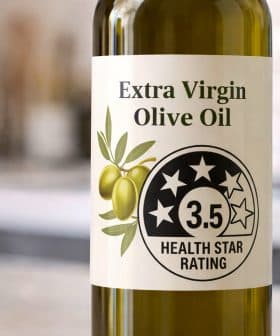Mediterranean Diet Lowers Death Risk for Heart Patients
New research indicates that the Mediterranean Diet reduces the mortality risk for heart disease patients more than taking statin medications.
The Mediterranean diet, rich in vegetables, fruit, olive oil, nuts, fish, and poultry, has been found to reduce the risk of overall mortality in individuals with cardiovascular disease, according to a recent study presented at the ESC Congress in Rome. The study showed that a higher adherence to the Mediterranean diet was associated with a 21% reduced risk of death, with even greater benefits seen in those with top-category adherence, emphasizing the importance of incorporating this dietary pattern for individuals with cardiovascular disease.
Being that heart disease is the leading cause of death worldwide, the fact that dietary habits can make such a huge impact is remarkable, though in some ways not surprising.
The Mediterranean diet, characterized by high consumption of vegetables, fruit, olive oil, nuts, seeds, fish and poultry, is well known for its many protective benefits from various diseases such as cancer, diabetes, Alzheimer’s, and Parkinson’s and cardiovascular disease.
The major contributors to mortality risk reduction were a higher consumption of vegetables, fish, fruits, nuts and monounsaturated fatty acids — that means olive oil.
A new study, however, looked at participants who already suffer cardiovascular disease (heart attacks, strokes, blocked arteries), which is different than many studies that evaluate general populations.
See Also:Olive Oil Health Benefits
The study, titled ‘Higher adherence to Mediterranean diet is associated with lower risk of overall mortality in subjects with cardiovascular disease: prospective results from the MOLI-SANI study,’ is not yet available for full review.
Giovanni de Gaetano, head of the Department of Epidemiology and Prevention at the IRCCS Neuromed Institute in Pozzilli, Italy, presented the abstract of the paper at the ESC Congress in Rome on August 28, according to a press release from the European Society of Cardiology (ESC).
In brief, the study was an observational study looking at approximately 1,200 participants out of 25,000 in the EPIC study. Food intake was evaluated via a food frequency questionnaire and the Mediterranean diet score (MDS) was used to evaluate the relationship between MedDiet consumption and total mortality.
Only 208 deaths occurred during the 7.3‑year follow-up and the authors conclude that “a 2‑point increase in the MDS was associated with a 21 percent reduced risk of death.” This was even greater, 37 percent, when participants had top-category adherence to the MedDiet.
“The major contributors to mortality risk reduction were a higher consumption of vegetables, fish, fruits, nuts and monounsaturated fatty acids — that means olive oil,” said Marialaura Bonaccio, the lead author of the research.
Professor de Gaetano also suggests that the mechanisms are likely related to other factors that have been seen as protective in other diseases: for example, the influence of a MedDiet with olive oil on inflammatory and oxidative stress factors that initiate and promote disease states.
In recent years, statins have been criticized by researchers as being ineffective and many of the studies on statins have not been independent, but funded by pharmaceutical companies. And, like most medications, statins come with adverse side effects.
Although more research will now be needed, Jeremy Pearson, associate medical director of the British Heart Foundation, said for The Telegraph that: “This study suggests that even if you are already receiving medical care, if you add a Mediterranean diet, it will have further benefit.
“Maintaining a healthy lifestyle, even if you have had a heart attack or stroke is really important and continues to benefit you.”









